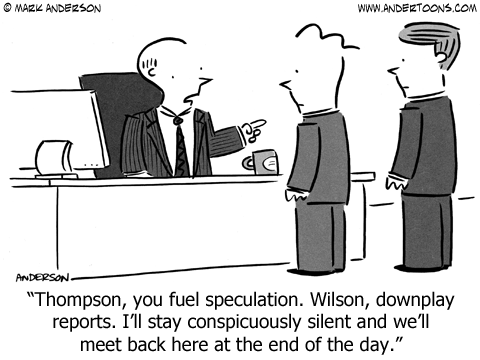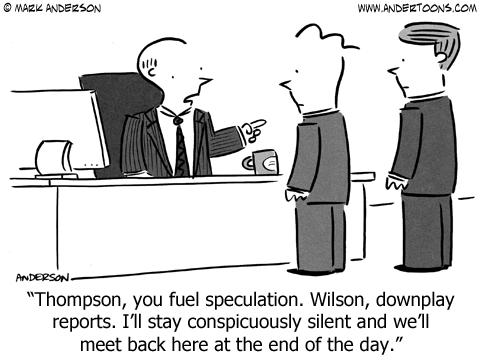Press is a great way to build a brand. But for startups, it’s not a sustainable way to build your business. Every young company wants to be featured in “Good Morning America,” the New York Times, Inc., Fast Company, Forbes, Women’s Health and more. These major publications and dozens more have featured our two companies, but we’ve found that the results have not led to a shift in the metrics that are critical to growing our businesses.
Earning coverage from magazines, blogs and TV shows might give you a huge bump in traffic, but it’s not as meaningful as getting in front of the right audience. For example, the popular app Cody received press from several major tech publications like GigaOm and VentureBeat on their launch day. They saw a traffic spike, but it was short-lived and traffic soon returned to much lower levels, as shown in the graph below.
For their longer-term marketing strategy, they regularly wrote articles for their own blog and for other websites in the fitness industry over a period of a year. You can see that their press bump (from the graph above) is now just a blip, while their content creation has paid off in spades.
Most people consider the goal of press to be getting covered. We think that it needs to be part of a much bigger marketing mix. While strategies for scalable growth are different for every company, here are a few things that have worked for us:
- Blogging. Just like Cody, Magoosh initially built its brand and company by blogging. We became a thought leader in the test prep space, specifically for the GRE. We hired an expert tutor as our first employee, and he wrote one blog article a day for nearly six months. We didn’t just focus on SEO (ranking well for search engines) – we focused on writing very high quality content so that we would build a relationship with our readers. Over time, more and more of our readers would come directly to our blog when looking for information about the GRE rather than searching on Google. We grew our traffic from 1,000 visitors/month to 20,000 visitors/month in four months using this strategy.
- Customer service. We both have focused on service as a way to scale; personalized service means repeat purchases forModify, and an awesome referral business for both of our companies. Many startups say they care about service, but we think amazing service should be part of your strategic marketing strategy. You’ll provide better service if you think about the “return on investment” of your customer interactions. You measure service ROI by using a Net Promoter Score or by tracking increase in word of mouth referrals. There are different ways to accomplish this. But in the end, you need to find out if customers would refer you to their friends. The answer has to be a definitive yes in order for service to be part of scaling.
So, is press useless? Absolutely not! We think you should pursue press for a few reasons:
- Credibility with investors. While your customers might not be reading press about your company, potential investors will be. Press coverage helps you build a relationship with an investor before they even know you – for instance they may have read about you in TechCrunch. You can also reference company coverage as social proof that others think you are newsworthy.Candid, a site that assigns a “culture score” based on current employees’ opinions of a company, was able to meet many new investors after their public product launch.
- Credibility with retailers. If you’re selling a physical product, having press can mean a lot for retailers. Next to Modify’s product, they can have photos of the various magazines we’ve appeared in. Retailers need to convince a customer who is seeing the brand for the first time that it’s a good investment – having imagery from Self, Shape, Vanity Fair and others has helped our watch sales. Having strong coverage was integral in Modify launching its Major League Baseball watches in a dozen stadiums this season.
- Credibility with future hires. Future employees are often looking to work for a hot new startup, and they often read startup press. For Magoosh, getting press in education technology publications has helped attract candidates who otherwise may have never heard of the company.
- Customer base expansion. Modify appeared on “Good Morning America” twice. We considered the opportunities parts of our marketing spend; both times we sold at a loss, but we were able to acquire thousands of new customers. We’ve been able to turn over 30 percent of those folks into repeat customers.
One final thing: if you’re going to pursue press, make sure to think about how journalists work. You can’t just send them information and say, “Cover me!” Turns out, they’re people too. We recommend you take Mark Suster’s advice and think about press as a process. Build relationships and create value for the people covering you, and you’ll get more — and more valuable — coverage.
This post was co-authored by Bhavin Parikh, founder and CEO of Magoosh, which provides a convenient, fun, and effective way for students to prepare for standardized tests.
Aaron Schwartz is Founder and CEO at Modify Industries, Inc., which designs interchangeable custom watches known as Modify Watches. He loves working on startup ideas and has spent innumerable (happy) hours advising friends and former students on how to grow their ideas.
The Young Entrepreneur Council (YEC) is an invite-only organization comprised of the world’s most promising young entrepreneurs. In partnership with Citi, YEC recently launched StartupCollective, a free virtual mentorship program that helps millions of entrepreneurs start and grow businesses.





